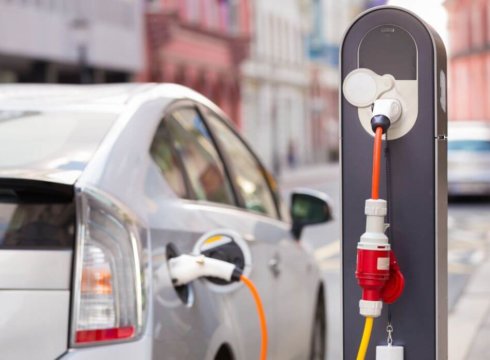SUMMARY
The Move Is Aimed At Promoting Electrically Powered Public Transport To Lower Pollution Levels
Inc42 Daily Brief
Stay Ahead With Daily News & Analysis on India’s Tech & Startup Economy
In another push towards faster adoption of electric vehicles, the Government of India is preparing to offer incentives to cities with population more than 1 Mn. The initiative, which is part of the FAME India scheme, is aimed at promoting the use of EVs in multimodal public transport to help lower population levels in urban areas.
To that end, the central government is looking to offer incentives for the procurement of electric cars, city buses as well as three-wheelers.
As per reports, the Ministry of Heavy Industries has already floated an expression of interest (EOI), calling state governments, municipal corporations and undertakings to submit proposals about the same.
An official close to the development stated, “The expression of interest is for a pilot project under the FAME India scheme, specifically designed to give a push to electric vehicles in multi-modal public transport.”
According to sources, the government is mulling offering grants of around $16.2 Mn (INR 105 Cr) to every selected city. The criteria for shortlisting dictates that each city should have a population above 1 Mn, as per 2011 census.
Other parameters that will be taken into consideration include average pollution level, number of registered vehicles and ranking in Swachhata Abhiyan. Additional incentives not more than $2.3 Mn (INR 15 Cr) will also be provided to each city for the construction of charging infrastructure.
As stated by the official cited above, the incentives will be used only to buy electric buses, three-wheelers and passenger cars running on new generation batteries with traces of lead like lithium polymer, lithium iron phosphate, nickel metal hydride and zinc air, among others.
Under the FAME India scheme, the grants could also be offered to states with special category status. The scheme would ultimately benefit buyers, including consumers and end users, as a result of reduced prices of electric vehicles.
The development comes on the heels of the government’s recent invitation of snap bids on EV chargers. The initiative is geared towards ensuring adequate charging infrastructure for 500 electric sedans that the Indian government will procure later this month.
Electric Vehicles Becoming More Of A Necessity Than Ever Before
According to a report by the Society of Manufacturers of Electric Vehicles, there has been a 37.5% rise in the sale of EVs in India in recent years. In a bid to achieve 100% electric vehicles by 2030, the government under the leadership of PM Narendra Modi announced tax reduction on electric vehicles to around 12% with the roll-out of GST.
As a major step towards procuring 1 Mn electric three-wheelers and 10,000 electrically-powered city buses by mid-2019, EESL floated a tender for 10,000 EVs and 4,000 charging stations in Delhi/NCR. The move is part of the government’s efforts to procure 50,000 electric three-wheelers by December 2017.
Within two weeks of the announcement, the government awarded Tata Motors the tender, while Mahindra said it would match Tata Motors’ lowest bid of $15,534 (INR 10.16 Lakh) per vehicle. It was also reported that the central government was holding discussions with 50 domestic and global companies to raise massive investment for purchasing and deploying electric vehicles, three wheelers, batteries and charging stations across the country.
To support the central government in its mission, several state governments and corporates have forayed into the electric vehicles space in recent times. In the second week of August, Mumbai-headquartered JSW Energy launched electric vehicles (EVs) in India by 2020. To that end, the company promised $545.72-$623.68 Mn (INR 3,500-INR 4,000 Cr) investment for the next three years.
A month later, the Karnataka government became the first state in the country to pass an Electric Vehicle and Energy Storage Policy, with a target to raise $4.83 Bn for EVs. Around the same time, Tata Motors revealed plans to foray into the EV market with a revamped version of its cheapest car, Nano. The multinational automaker has already conducted a road test of the Nano EV in Coimbatore.
In October, Maruti Suzuki India announced plans to enter the EV space just as reports of Ashok Leyland infusing $61.5 Mn-$77 Mn (INR 400 Cr-INR 500 Cr) into its electric vehicle business surfaced. Most recently, Telangana government created a draft policy on electrically-powered vehicles.
In India, automobile exhaust is currently one of the biggest sources of pollution in cities. Through initiatives like the FAME India Scheme, the government is not only looking to lower the levels of pollution in urban areas, but is also hoping to reduce traffic congestion by promoting multimodal public transport.
(The development was reported by Livemint)
Note: We at Inc42 take our ethics very seriously. More information about it can be found here.


